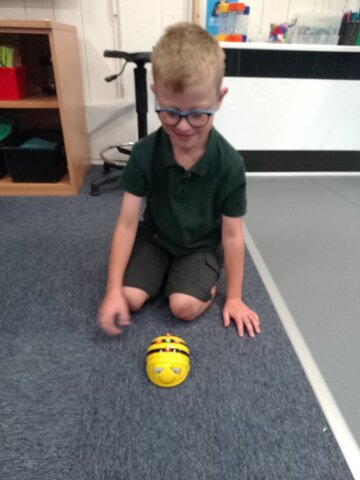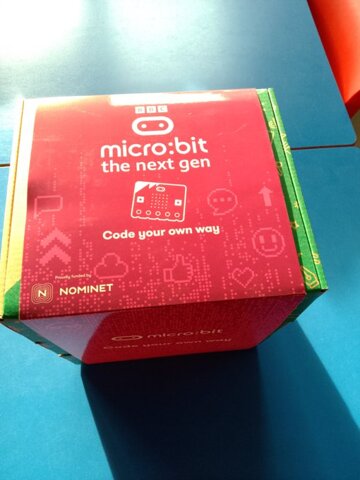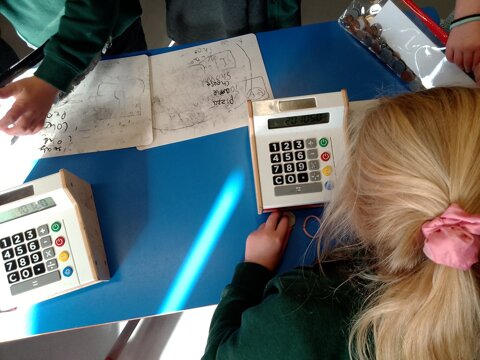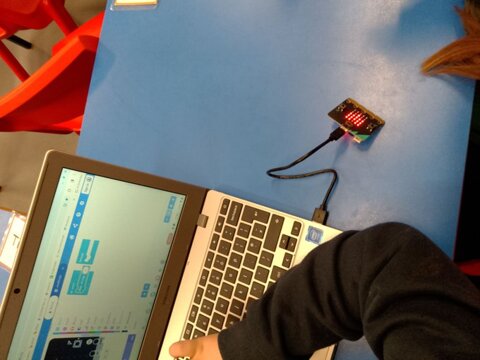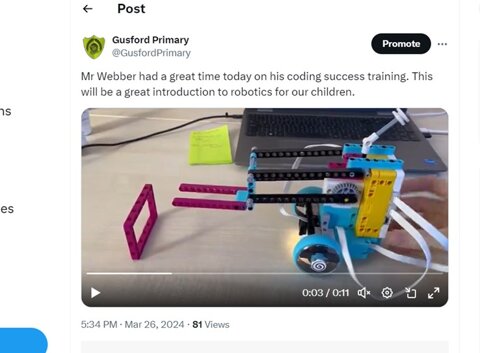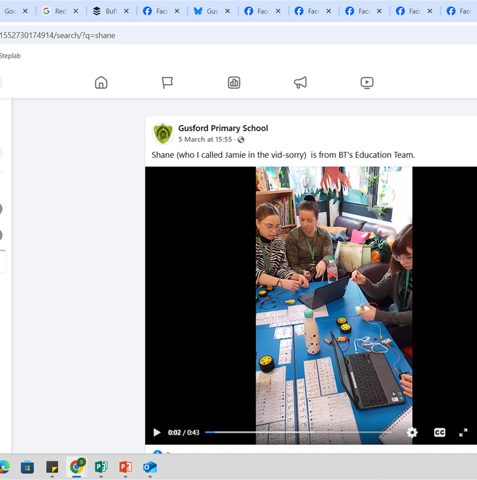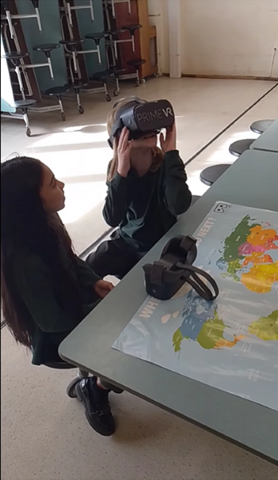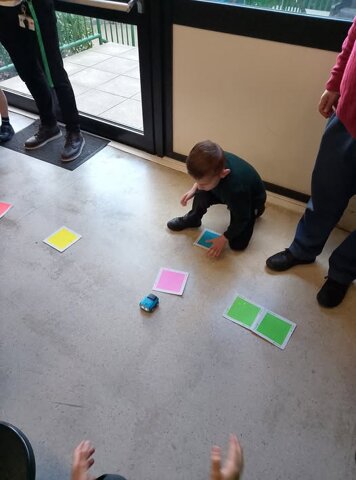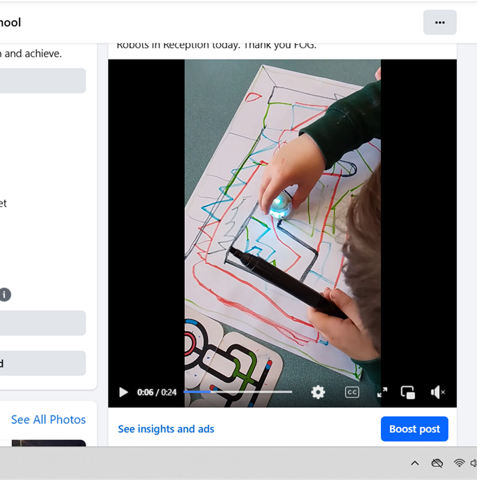Intent
“A high quality computing education equips pupils to understand and change the world through computational thinking. It develops and requires logical thinking and precision. It combines creativity with rigour: pupils apply underlying principles to understand real-world systems, and to create purposeful and usable artefacts.”
The six key pillars to computing at Gusford:
1. Digital Literacy: In our increasingly technology-driven world, understanding computing is essential for basic digital literacy. It equips students with the skills to navigate and use technology effectively.
2. Problem Solving: Computing encourages critical thinking and problem-solving skills. Students learn to break down complex problems into manageable steps, a skill applicable in various aspects of life.
3. Innovation and Creativity: Computing fosters creativity by enabling students to design and create software, websites, and digital content. It's a medium for self-expression and innovation.
4. Cross-Curriculum Relevance: Computing is not confined to its own field; it intersects with various subjects like science, maths, and even the arts. Understanding computing enhances students' capabilities in other subjects. Overall, computing equips students with crucial skills and knowledge for the modern world and future careers.
5. Career Opportunities: Proficiency in computing opens up a wide range of career opportunities. From software development to data analysis, these skills are in high demand in today's job market.
6. Online Safety: Providing children with the knowledge and skills to manage an ever changing online environment safely is vital in allowing children to enjoy the benefits of the previous pillars.
At Gusford, we believe that these six pillars are foundations that computing should be built on in our school to best prepare our students for the ever changing technological world. Children through the prism of computational thinking within our curriculum solve problems, interact with digital literacy, are allowed to be creative and understand the power and limits of human and machine intelligence. Furthermore, pupils who can think computationally are better able to conceptualise, understand and use computer-based technology, and so are better prepared for today’s world and future.
Implementation
At Gusford, children will:
● enjoy using information technology and tackle all applications with confidence and a sense of achievement and purpose (Digital literacy).
● develop practical skills in the use of information technology and the ability to apply these skills to the solving of relevant and worthwhile problems (Problem solving).
● understand the capabilities and limitations of information technology and the implications and consequences of its use (Innovation and creativity).
● be open minded in their approach to information technology so that they will be able to adapt easily to the information technology systems and approaches they will encounter in their future lives (Career opportunities).
● understand and apply the fundamental principles and concepts of computer science, including abstraction, logic, algorithms and data representation (Digital literacy).
● analyse problems in computational terms, and have repeated practical experience of writing computer programs in order to solve such problems (Digital literacy).
● use information technology as a tool appropriately across the curriculum to support and enrich their learning (Cross-curriculum relevance).
● Children will be able to engage safely and smartly with ever changing technology (Online safety).
A good lesson at Gusford would be underpinned by one or more of the six key pillars to computing at Gusford. Throughout lessons children will be exposed to subject specific vocabulary which will enhance their understanding of key concepts. Children will be given opportunities in lessons to problem solve, be innovative and creative, develop their digital literacy, and understand technology they are using. Also, providing children with a concrete understanding of online safety and how to keep themselves safe in an ever changing digital world.
Impact
Through following the Gusford curriculum children will have had the opportunity to; build digital literacy skills, engage in a range of problem solving, be innovative and creative in their use of different technologies, and have the skills to access a wide range of computing resources in the real-world. Pupils through engaging with computational thinking with the curriculum will be better prepared for the future development of technology. All with an underpinning of online safety and providing children with an awareness of the dangers posed by the ever changing technology world.
Cross Curriculum Relevance
The teaching of computing contributes to teaching and learning in many curriculum areas and is why cross-curricular relevance is one of the key pillars. It also offers ways of impacting on learning which are not possible with conventional methods. Teachers use software to present information visually, dynamically and interactively, so that children understand concepts more quickly.
For example, graphics work links in closely with work in Art, and work using databases supports work in Maths, whilst the Internet proves very useful for research. Digital literacy can provide children with opportunities to present their information and conclusions in the most appropriate way.
Children use digital literacy in Maths to collect data, make predictions, analyse results, and present information graphically. Screen robots allow pupils to give exact instructions for a particular route, or to use their knowledge of angles to draw a range of polygons. Maths games are used to consolidate key areas of the syllabus.
In Science, data loggers are used to assist in the collection of data and in producing tables and graphs. Green screen technology is used to create meteorological simulations. In English, stop motion animation is used to create story maps. Also, the many links within digital literacy that support the writing process taught throughout school on online platforms and devices.
Furthermore, problem solving is a key skill for children and is engaged in across all subject areas throughout learning at Gusford. Computing is also at the heart of career opportunities for pupils and as they move onto the next stage of their education it is key these skills have been developed.
Computing Documents
Internet Safety
On-line software (games, apps, social media) change almost daily. There is also a corresponding increase in e-safety advice, which although well-intentioned can sometimes leave you more confused than you were in the first place. Please feel free to contact the school and discuss any concerns you may have regarding on-line safety. We have expertise in school and the facility to contact well respected professional e-safety advisors:
We took part in Safer Internet Day on Tuesday 6th February 2024 and will again next year.
Realise Futures delivered an on-line safety family workshop this morning (8.02.24) Thank you.

Family Internet Safety Agreement
Some families an agreement like this can be useful.
.jpg)

Advice on Screen Time
Internet Matters Screen Time Advice

